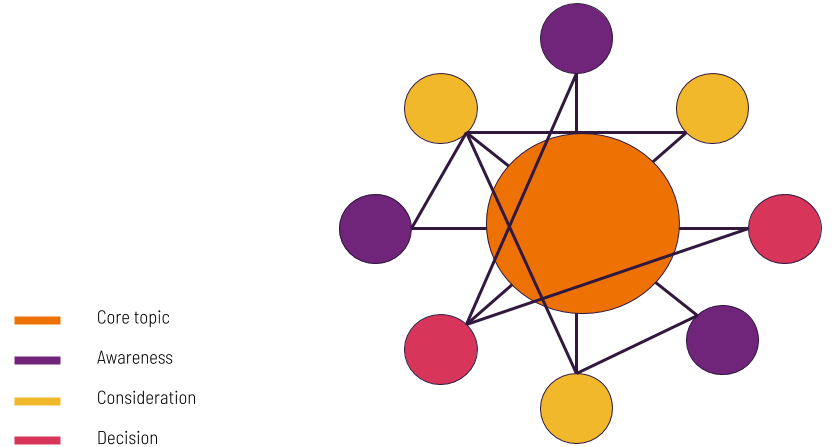Your day to day is most likely a lot of work. Because that’s what we as SME’s do. As a small to medium business maybe you should question the work you do and ask if it’s bringing you happiness and meaning.
Finding happiness and meaning… How do you get that and how does that tie into creating a successful work culture?
Find the answer to that on this episode of… FORWARD THINKING
Having meaning behind work is something everybody strives for and Ross Reekie, founder of Rise Consulting, is a great facilitator of that. Through his own research, story telling and interviews in Rise’s own podcasts, organisations, leaders and individuals have been inspired to find and lead with clarity. This positive culture that he generates for organisations is of crucial value for any SME to ensure that everyone is the workplace is driven and happy!
Table of Contents
ToggleWhat you’ll learn from this episode:

- Actionable ways that you can make work meaningful
- How to improve engagement when it feels like you’re working at a job you don’t like
- The change of values across generations in the workplace
- The impacts of Ross’ coaching programs
- How your business can establish a great work culture
- How Rise Consulting’s small investment in research companies led to streams of publicity
- The multiple benefits of networking events
Notable Quotes:
- “I think a really important distinction to make is between happiness and meaning”
- “Your day-to-day does need to involve some pleasure and some happiness, but the focus needs to be on the long-term satisfaction.
- To feel a sense of belonging in a culture that culture needs to belong to you”
- “If you are feeling that work and happiness are a juxtaposition and can’t live together please know that it is possible… If you take steps towards what you love doing, it really is possible to get there”
Resources mentioned:
Books recommendations:
- Man’s Search For Meaning by Viktor Frankl
- Simon Sinek’s “Find Your Why”
What business would you build on Mars?

I think there’s a happiness at work conversations we had with him on that spaceship.
But if we arrived on Mars and Elon Musk was leader of the Martian universe, then with his intensity, they’d be crying out for a good comedy club. What I would love to do to promote this would be I would get a giant trampoline. We got less gravity on my eyes, so we’d try and set a universe record for higher high.
Somebody could jump on the trampoline every night that we opened. I think that would be a bit of fun.
Reach Ross here:
- on Linkedin
Transcript

[00:00:00] Daren: Your day to day is most likely a lot of work because that’s what we as SMEs do. As a small to medium business, maybe you should question the work you do and ask if it’s bringing you happiness and meaning. Finding happiness and meaning- how do you get that? And how does that tie into creating a successful work culture? Find the answer to that and more on this episode of Forward Thinking.
Hey everyone, I’m Daren Lake, the audio content manager here at Metigy. Welcome to Forward Thinking, a podcast by Metigy. In this series, we speak with inspirational business owners, brands, and marketing experts to learn from their experiences on the frontline and uncover what it takes to build a world-class business.
Having meaning behind work is something everybody strives for. Ross Reekie, founder of Rise Consulting is a great facilitator of that. Through his own research, storytelling, and in the interviews of Rise’s own podcasts, organizations, leaders, and individuals have been inspired to find and lead with clarity. This positive culture that he generates organizations is of crucial value for any SME to ensure that everyone in the workplace is driven and happy.
Ross Reekie is a consulting research and storyteller who is passionate about making work awesome. His mission is to inspire people and give them the confidence to find their own happiness and meaning at work and help businesses through create the environments to enable it.
What you’ll learn in this episode: how to improve engagement when it feels like you’re working at a job you don’t like, the change of values across generations in the workplace, the impacts of Ross’s coaching programs, the multiple benefits of networking events, and so much more. Let’s jump into the conversation with Ross and Metigy’s head of content and employee number four, Brendan Hill.
[00:01:48] Brendan: Ross, welcome to the show.
[00:01:50] Ross: Thanks for having me.
[00:01:51] Brendan: So making work awesome. A bit of an oxymoron. I know a lot of people aren’t happy when they go to work. How did you get involved with creating meaning and happiness at work?
[00:02:00] Ross: I think that some people do see it as an oxymoron at work and that’s often the case, but it doesn’t need to be like that.
So I’ve always been inspired by other people who make work, work for them. Why does work enhance this person’s life and make them feel great? For this person over here, it diminishes it and takes away from them. I’d always had the idea to explore this. I was looking for a creative outlet for my HR consulting business.
M y way to solve that was to buy an audio recording device and go and start recording a podcast called the meaning of work. It was during that podcast that a friend of mine sat in on one of the interviews with Nicola. She had been an investment banker and then she became. She quit and became a swim coach in Greece after having a bit of a breakdown.
My friend who sat in on it, she gave these amazing raw answers. My friend at the end said, oh my God, that was awesome. Imagine the insights we’ll get. If you keep doing these interviews and imagine the body of knowledge, that would make a great PhD. That’s when every fiber of my body just started screaming at me.
I curled over in the chair and I just said, oh shit, I got to do this. I need to make a phone call. I found an old lecturer from MBA and said, this is what I’m doing. Would it be a PhD? Then, long story short a week later, I was signed up. It just happened.
[00:03:22] Brendan: What are some actionable tips of ways that people can make work meaningful and awesome?
[00:03:29] Ross: I think a really important distinction to make is between happiness and meaning. We try and focus on meaning instead of happiness. The difference, the way to think about the difference is short term happiness, which the academics call hedonistic happiness is all about immediate pleasure and maximizing the amount of pleasure, minimizing the amount of pain.
The problem with this is you get into a treadmill, you buy the new handbag or the new car, and it makes you happy for a little while. Then, that happiness fades away. You need to keep repeating that over and over again. The academics, they call this the hedonistic treadmill and we get stuck on that all the time.
So it is important to have fun and happiness at work. But what we try and focus on is the long term happiness around fulfillment satisfaction. I would say a proxy for that is meaning. If you want to look into how to make meaning happen. That’s a really increasing field of study at the moment that stretched back to the ancient Greeks.
I think it is important to make a distinction between short term happiness and longterm happiness. We would use meaning as a proxy for longterm happiness, the short term happiness which the academics would call hedonistic happiness is all about maximizing pleasure and minimizing pain. The problem with that in a work environment is, Anything meaningful we’ve ever done, involve some sacrifice and some pain. Think about climbing a mountain, it’s I’m not a mountain climber. The last time I got dragged up a mountain by my Austrian partner, I complained and I was miserable the whole way.
But when we got to the top, it felt awesome. It’s kinda like that at work, that your day-to-day does need to involve some pleasure and some happiness, but the focus needs to be on the long-term satisfaction. That’s what we try and work with organizations leaders on.
[00:05:20] Brendan: Can you tell me any stories of a time when one of the clients you’re working with has, cracked the code and figured out a way how to instill that long term happiness in their company?
[00:05:32] Ross: We worked with a client just last week on a leadership development program. This is a bunch of high potential leaders in a small business of 200 people. We went through the meaning and happiness work that we do with them. We went through personality, a leadership, and at the end, one of the guys on the course said, “So, are you telling me the way I behave actually affects the culture here?” And he thought about it for a second. He said, “so we basically are the culture of this business”.
So the connection he had made was to feel a sense of belonging in a culture that culture needs to belong to you. We actually have an impact on it, but the code that we take people through if anyone types meaning into Google, what comes up is meaning and purpose.
We’ve all heard the Simon Sinek find your why. That’s a really important component of finding meaning at work. But it’s not the only mechanism for finding meaning at work. We do need a sense of belonging. We do need to engage authentically in the work that we’re doing. We do need to have a sense of achievement.
We do need to have a sense of self-worth and self-esteem, we do need to have great connections with the other people that we work with. Most importantly, we need to make an impact on the communities we’re working on. We take a seven step process through an organization. The most common thing we find is people who are working on great causes, end up being disconnected from the end user enjoying that the fruits of their labor.
So we do a lot of work with connecting those two things.
[00:07:17] Brendan: That’s interesting. From my personal experience, I’ve worked for UNICEF, the children’s charity, and everyone was engaged. Everyone loves the call. If you’re working at a job that you don’t like, for example. How do you find that engagement and with other employees as well?
[00:07:35] Ross: The funny thing is that you mentioned engagement and corporations have been measuring engagement for a few decades now. If you look at the average engagement score now compared to when we first started measuring engagement, it hasn’t budged.
It hasn’t moved at all. As a population, we’re no more engaged in work now than we were 25 years ago. In that period of time, we spent billions and trillions of dollars on leadership development programs and organizational development programs. We’re missing the core component, which is finding the meaning in the work.
We’re slowly finding the leaders have cottoned onto this and saying let’s actually work out why people are here. What is the reason that they’re here and how can we connect people to what we’re doing.
[00:08:26] Brendan: What are some of the benefits of having a awesome workplace. Obviously staff retention is big for us now, like hiring is a big drain on resources so much better to keep someone than try and find someone new. What other kinds of benefits are there in any examples that you could tell us for any of the clients that you’re working with?
[00:08:48] Ross: When we work with clients, they largely fall into one of t hree categories, there’s the people who just don’t get this stuff. They’re super, super cynical about it, and they don’t want a piece of it. Generally they don’t become a and then there’s is an older generation that say maybe there’s something in this there’s I see the benefits.
We see organizations as being way more productive, way more innovative. There’s way less sick days, way more engagement. The creativity of organizations just goes up dramatically when people have meaning and happiness at work. There’s an older generation of leaders who say, okay there’s some benefits that’s maybe worthwhile looking into this.
Let’s give it a crack. But then there’s this whole younger generation millennials onwards and the gen Z even more extreme than this. They see meaning and happiness as an end in itself work should just be fun. Why we make it that way? With some of the companies that we acquired, we’ve seen just huge benefits.
The most common one we see is that the experience of the employees working in the business just skyrockets, they actually go to work and enjoy the experience and they go home at the end of the week saying that was really worth something. It matters what I do.
[00:10:06] Brendan: Why did, why do you think it matters to them? Why it matters what they do.
[00:10:11] Ross: With millennials, we know that as a cohort they care more about this stuff than the previous generations. I can speculate on some reasons. I think the baby boomers have, they’ve used that poli oil, they’ve chopped down all the trees and they’ve eaten all the fish and millennials that are lumped with the problem.
You gotta solve this. They’ve grown up with a warming planet. They’ve grown up with environmental problems. They’re saying we care about the future of the planet that we’re inheriting. We want to do something about it. I think. That has been conditioned into younger generations. I think that’s one of the big reasons.
[00:10:48] Brendan: An exciting future ahead! Focusing on your future now for a second, what has you most excited and fired up in your business at the moment?
[00:10:58] Ross: We are launching a couple of programs around concept of leading with meaning and coaching for meaning and it’s around.
Shaping the relationship that we have with work and enabling leaders to be able to pull those leavers. I’m super excited about rolling these out of the way. Yeah.
[00:11:16] Brendan: What do you hope to see once you’ve rolled on out? Like how are these going to help these businesses?
[00:11:21] Ross: What we see is the change in people’s lives.
There is such a dramatic difference between going to work and not enjoying itand going to work and coming home with a spring in your step. It really does flow into all aspects of people’s lives. That is the huge motivation for me. I really want to impact people’s lives in a positive way. I’m on the cusp of millennial. Maybe that’s got something to do with it.
[00:11:47] Brendan: So I guess for people listening, recently started their business. They’re about to make their first hires or they’re thinking about starting a business. What are some proactive ways that they can implement before they start to create a culture in their workplace?
[00:12:03] Ross: I get asked this question a lot, which is what is the, it’s a version of what is the one thing that we can do to make our business a better place to work. My consistent answer on this is make it a business priority, actually put this near the top of your list with making money and getting our product out, put it near the top is happiness of employees.
The way that you would go about that, I would suggest it would be the same way you got by any of your other strategic initiatives, which is put someone in charge of it. Who’s got some authority at executive level. Put together a working committee across section have invent a title called chief happiness officer, pass it around and engage people and ask them what it is.
That’s going to make them happier at work. You’ll be so surprised at some initivatives that come out of that.
[00:12:54] Brendan: One of the good examples that comes to mind, I visited Zappos. The shoe company that got acquired by Amazon. Meant to be the happiest place to work in the world. Apparently it’s harder to get into Zappos than it is to Harvard. W hy do you think more companies don’t take this approach?
There’s always that every year we see the top 100 happiest places to work. We see the flow on effects. You’ve mentioned a lot of them. Why are companies still reluctant to create this sort of culture?
[00:13:25] Ross: I don’t think many CEOs get out of bed in the morning and say, I don’t want my people to be happy. I don’t think they’re doing it deliberately or consciously. Maybe you got a couple of people like that who might not want to work for, but I think mainly it’s because this area of business is hard.
Relations with people and work are hard. It’s a moving feast as well. It’s constantly evolving and changing, and it’s not like building a product online. You write a bit of code and there it is, the product goes out. You have to constantly work at this and. The literature around it is just so confusing.
And it takes a lot of energy to work on this. I think it’s more of an education piece and a habits piece. I think it comes back to making an actual priority. If it’s a priority, then it will happen.
[00:14:30] Brendan: You mentioned Simon Sinek’s book, start with why? So obviously I got a lot of value out of reading that myself. Are there any other books or did you want to expand on, start with why that have helped you in your business?
[00:14:44] Ross: I think start with why is a good place to start, but don’t end with why read other books and look at other things. Purpose is really important.
If you can have all the purpose in the world and be really connected to that. But if you don’t feel a sense of belonging and you feel an outsider in your workplace, you’re wasting your time with that because you’re going to, you’re going to feel that lack of belonging really keenly. My advice is don’t end with Y in terms of books that I’ve drawn from.
One of my favorites was man’s search for meaning by Viktor Frankl. He’s a austrian. He was an Austrian psychotherapist who lived in Vienna during second world war. He ended up in Auschwitz and he survived. He wrote this book about surviving. One of his main observations was if we have a strong enough why then we can survive any how.
To me, that was very inspiring. The way that he was able to have the strength of character in his mind to shift his perception of what was going on. It’s a great read.
[00:15:51] Brendan: All of the resources that we mentioned today will be in the show notes. Don’t worry about missing out on any of the great value that we’re dropping today.
[00:16:02] Ross: So taking a step back again to have a look at your business. What are the best sort of investments that you’ve made over the last year? It could be a tool or a course or campaign.
The best investment hands down that we’ve made over the last year, which surprised me a lot, actually invested a small amount of money in a research company to do a piece of research for for us.
The leading question was if you could choose between being happier at work or having a pay rise, which would you choose? Wee found that 66% of respondents across the Australian population said, I would rather have more happy. It was surprising. But then when we dug into this 90% of those people said more meaning in my work would give me the happiness.
The news media really picked us up and we ended up in the Sydney morning Herald and across all Fairfax publications and then the ABC stumbled across it. From that we ended up or I ended up on an interview on live radio for ABC, with a world renowned psychologist, talking about happiness at work.
From that Canon picked it up and they were sponsoring a white paper on the future of where can they publish that out? So we ended up doing this one tiny piece of research around a question that was really, I just was so curious to know the answer to, and it turned into a whole stream of of public of publicity which was really fun.
[00:17:30] Brendan: Touching on tools again, is there any tool, a hundred dollars or less that you’ve made in the last year that’s made a significant impact. It doesn’t necessarily have to be business related. It could be personal.
[00:17:42] Ross: I know which tool I would use going forward. I’d buy a phone cover of smash my phone about six times in the last year, but the best, the cheapest investment.
We’ve made from a marketing point of view in our business has been to host a series of lunch and learns. We get the space free in the coworking place that we work. We pay for a few sandwiches and we invite clients and people who are interested. Yeah. We tell our story, we give a one-on-one guidance, how to create meaning and happiness at work.
That’s been hugely fun to do, but it’s been really positively received with people as well.
[00:18:19] Brendan: Think talking about these events, are these more of a lead generation? Are they more about establishing authority in the space? What have they resulted in for you guys?
[00:18:28] Ross: I think it’s a bit of both Our expectations were pretty low on these and I have to admit, the first time we did, it was just practice talking about this topic in front of a bunch of captive victims.
And it struck a chord with people and we continue to do them and that they definitely have resulted in leads. But it’s the branding and the storytelling around this that has captured people’s imagination.
[00:18:51] Brendan: Awesome. Thanks so much Ross, for all the value that you’ve given the audience over the last few minutes. As I mentioned before, we’ll have all the resources in the show notes, and you can find these at Metigy.com/podcast.
Just before we wrap up, we’ve got a question that we like to ask all that guests. It’s a bit different. It’s to be creative. Gets you thinking in abstract waves. You’re on the first flight to Mars with Elon Musk and the first settlers I bought the SpaceX Starship rocket.
What business do you start when you land on Mars and how would you promote it to the new Martians?
[00:19:29] Ross: That’s an awesome question. I love this question. I think if I was on the spaceship to Mars with Elon Musk, he is a genius and all, and it would be fascinating to have some time to talk with him. But my impression of him is he’s a pretty intense dude.
[00:19:45] Brendan: I hear that SpaceX, for employees, they’re pulling 16 hour days, six, seven days a week. They’re definitely engaged at the workplace at least.
[00:19:54] Ross: I think there’s a happiness at work conversations we had with him on that spaceship.
But if we arrived on Mars and Elon Musk was leader of the Martian universe, then with his intensity, they’d be crying out for a good comedy club. What I would love to do to promote this would be I would get a giant trampoline. We got less gravity on my eyes, so we’d try and set a universe record for higher high.
Somebody could jump on the trampoline every night that we opened. I think that would be a bit of fun.
[00:20:29] Brendan: Can’t wait to sign up! Ross, again, appreciate your time today and the value that you give the audience. Is there anything you’d like to say before we wrap up anything that you’d like to ask people?
[00:20:39] Ross: If you would like to know more, please go to our website riseconsulting.com.au. But what I would say to anyone is if you are feeling that work and happiness are a juxtaposition and can’t live together please know that it is possible. . It doesn’t need to happen overnight, but if you take steps towards what you love doing, it really is possible to get there.
[00:21:03] Brendan: Amazing. Looking forward to checking out your website and it’s being fun. Thanks for coming on.
Thanks for having me really appreciate it.
[00:21:09] Daren: From Metigy, you’ve just listened to Forward Thinking. Again, I’m Daren and Metigy hopes we helped you find more insights and tips into your business to find out more about Metigy and get a listener exclusive three-month free trial, visit us at Metigy.com/podcast. And while you’re there, go and check out some more episodes.
If you liked what you heard, please share a link to another business owner or marketer who you think could get something from this. Also to help us out, it would be great if you left a five star review on your favorite podcast app. Last, never miss another episode by following or subscribing to us on your favorite podcast player.
See you on the next episode.









